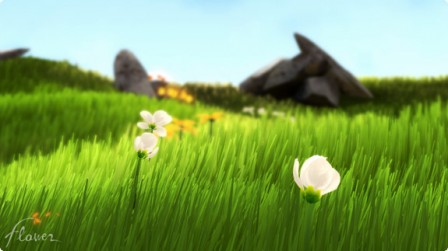[While trying to help one of my nieces with a school project, I dug up the bit I contributed to EGM’s award-winning Future of Videogames piece from early 2007. But after looking at it again, I realized they had to cut my Brief History of Internet Gaming sidebar down quite a bit to fit it into the mag. This is the original version.]
1969 – The first ARPANET link is created, building the first strand in what would eventually become the Internet.
1978 – The first multi-user dungeon (MUD) is created. Little more than a customizable chatroom, the MUD is nevertheless the predecessor to today’s MMORPGs.
1985 – Quantum Computer Services launches Quantum Link, an online hub for the Commodore 64, featuring simple multiplayer board games. The service is later renamed America Online.
1991 – Neverwinter Nights, the first MMORPG with graphics, is launched on AOL. It costs $6 an hour to play. Its server capacity: 50 players.
1996 – Quake is released, shortly followed by QuakeWorld, a client for playing the game over the Internet. The era of the online FPS is born.
1997 – Ultima Online is launched. 100,000 subscribers sign up within the first six months, only to be brutally PKed and have their boats stolen.
1998 – The Dreamcast is released in Japan, becoming the first game console to launch with a built-in modem. Also, the last.
1999 – EverQuest and Asheron’s Call are launched, completing (with UO) the unholy triumvirate that has strongly influenced MMORPGs to this day.
2002 – Xbox Live is launched on the original Xbox, setting new standards for communication both in-game (with standardized voice chat) and cross-game (with a unified login and friend list). PS2 and Gamecube also debut online functionality, but neither approaches XBL in popularity.
2003 – EverQuest is ported to PS2 in the form of EverQuest Online Adventures. The gaming world notices, yawns, and goes back to hunting for new Final Fantasy XI screens.
2004 – Halo 2 is released, featuring one of the most popular online components in any console game. Within the next two years over half a billion games of Halo 2 will be played online. Also this year: World of Warcraft launches. You may have heard of it.
2006 – PS3 and Wii are launched. Xbox Live takes note of the systems’ respective online offerings, heaves a sigh of relief, and returns to lounging on its jewel-encrusted throne.
2007 – Halo 3 launches. A crippled Internet limps along under the strain of a few million players all getting online at the same time.
2008 – “Internet2” is completed, offering researchers and universities 100 Gbps transfer speeds.
2009 – Debut of 100-Gbps streaming porn.
2010 – Most metropolitan areas now offer free Wi-Fi within city limits. All that shared bandwidth makes users nostalgic for the dial-up days.
2029 – The Internet, now self-aware, sends a T-800 back in time to kill Sarah Connor.
2050 – Humans move to an internet-only existence, uploading their brains to permanently live in the electronic world.
2112 – Attention, all planets of the Solar Federation: We have assumed control.

